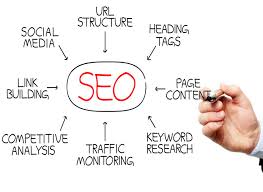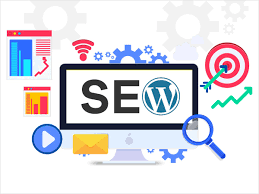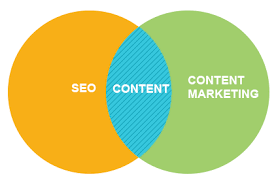The Power of Content Marketing in SEO Strategies
The Power of Content Marketing in SEO Strategies
In the dynamic world of digital marketing, content marketing has emerged as a crucial component of successful SEO strategies. Content is not just king; it is the foundation upon which effective search engine optimisation is built.
Why is Content Marketing Essential for SEO?
Search engines like Google are constantly evolving their algorithms to provide users with the most relevant and valuable content. This shift towards user-centricity means that websites with high-quality, engaging content are more likely to rank higher in search engine results pages (SERPs).
Content marketing plays a pivotal role in SEO for several reasons:
- Keywords: Well-crafted content allows you to naturally incorporate relevant keywords that users are searching for, improving your website’s visibility.
- Backlinks: Compelling content attracts inbound links from reputable sites, boosting your website’s authority and credibility in the eyes of search engines.
- User Experience: Informative and engaging content enhances user experience, reducing bounce rates and increasing dwell time on your site – both critical factors for SEO success.
- Long-Term Results: Unlike paid advertising, quality content continues to drive organic traffic over time, providing sustainable results for your SEO efforts.
Tips for Effective Content Marketing in SEO
To maximise the impact of your content marketing on SEO, consider implementing the following strategies:
- Create High-Quality Content: Focus on producing original, valuable content that addresses the needs and interests of your target audience.
- Optimise for Keywords: Conduct keyword research to identify relevant terms and phrases that align with your business goals, and strategically incorporate them into your content.
- Promote Your Content: Share your content across various channels, including social media platforms and industry-specific forums, to increase visibility and attract backlinks.
- Monitor Performance: Use analytics tools to track the performance of your content, identify areas for improvement, and refine your strategy based on data-driven insights.
The Future of SEO Lies in Compelling Content
In conclusion, content marketing is not just a trend but a fundamental pillar of successful SEO strategies. By creating high-quality, relevant content that resonates with your target audience and aligns with search engine guidelines, you can enhance your online visibility, drive organic traffic, and ultimately achieve sustainable growth in the digital landscape.
18 Essential FAQs: Understanding the Intersection of Content Marketing and SEO
- What are examples of SEO marketing?
- What is SEO and how it works?
- How do you SEO content?
- Why SEO and content marketing?
- How does content marketing improve SEO?
- What is SEO in content marketing?
- What is an example of SEO marketing?
- How can I improve my SEO and content marketing?
- What are the 4 main categories of content marketing?
- How do I promote SEO content?
- What are the 6 areas of content marketing?
- Is content marketing part of SEO?
- How do you combine SEO and content marketing?
- How do you integrate content marketing and SEO?
- What is an example of SEO?
- What is content marketing vs SEO?
- What is content marketing in SEO?
- Why is content marketing good for SEO?
What are examples of SEO marketing?
When exploring the realm of SEO marketing, there are various strategies and tactics that businesses can leverage to improve their online visibility and attract organic traffic. Examples of SEO marketing include keyword research and optimisation, on-page SEO techniques such as meta tags and headings, creating high-quality and engaging content that resonates with the target audience, building backlinks from reputable websites to enhance domain authority, optimising website speed and mobile responsiveness for better user experience, and utilising local SEO strategies to target specific geographic locations. By implementing these SEO marketing practices effectively, businesses can enhance their search engine rankings and drive valuable organic traffic to their websites.
What is SEO and how it works?
Search Engine Optimization (SEO) is a fundamental digital marketing strategy aimed at improving a website’s visibility and ranking on search engine results pages (SERPs). In essence, SEO involves various techniques and practices that help search engines like Google understand the relevance and quality of a website’s content. By optimising factors such as keywords, meta tags, backlinks, and site structure, SEO works to enhance a website’s organic (non-paid) traffic. Ultimately, the goal of SEO is to increase a website’s visibility to potential users searching for relevant information or services online, leading to improved brand awareness, higher traffic volumes, and increased opportunities for conversions.
How do you SEO content?
Optimising content for SEO involves a strategic approach to ensure that the material resonates with both search engines and human readers. To SEO content effectively, start by conducting keyword research to identify relevant terms and phrases that align with your target audience’s search intent. Incorporate these keywords naturally throughout the content, including in titles, headings, meta descriptions, and body text. Focus on creating high-quality, engaging content that provides value to readers while also adhering to SEO best practices such as proper formatting, internal linking, and mobile responsiveness. Regularly monitor performance metrics and make adjustments based on data insights to continuously improve your content’s visibility and impact in search engine results pages.
Why SEO and content marketing?
The integration of SEO and content marketing is essential for businesses seeking to enhance their online visibility and engage with their target audience effectively. SEO ensures that your website ranks well in search engine results, driving organic traffic and increasing brand visibility. On the other hand, content marketing focuses on creating valuable, engaging content that resonates with users and encourages them to take action. By combining SEO strategies with compelling content, businesses can not only attract more visitors to their site but also build credibility, authority, and long-term relationships with their audience. This synergy between SEO and content marketing is a powerful combination that can significantly boost a brand’s online presence and contribute to its overall success in the digital landscape.
How does content marketing improve SEO?
Content marketing plays a crucial role in enhancing SEO by providing high-quality, relevant content that aligns with user intent and search engine algorithms. By creating engaging and informative content that incorporates targeted keywords, businesses can improve their website’s visibility in search engine results pages (SERPs). Additionally, compelling content attracts backlinks from authoritative sources, boosting the website’s credibility and authority in the eyes of search engines. Furthermore, user-friendly content enhances the overall user experience, leading to increased engagement metrics such as lower bounce rates and longer dwell times, which are key factors for SEO success. Ultimately, content marketing not only drives organic traffic to the website but also establishes a strong foundation for long-term SEO growth and visibility online.
What is SEO in content marketing?
SEO in content marketing refers to the strategic practice of optimising digital content to enhance its visibility and ranking in search engine results pages (SERPs). Essentially, SEO in content marketing involves incorporating relevant keywords, structuring content for readability and user experience, and attracting quality backlinks to improve a website’s search engine performance. By aligning content creation efforts with SEO best practices, businesses can increase organic traffic, reach their target audience more effectively, and ultimately achieve greater online visibility and engagement.
What is an example of SEO marketing?
An example of SEO marketing is when a company optimises its website content with relevant keywords and meta tags to improve its visibility in search engine results. By creating high-quality, informative content that aligns with user search queries, the company increases its chances of ranking higher on search engine results pages (SERPs) and attracting organic traffic. Additionally, implementing link building strategies and monitoring analytics data to refine the SEO approach are also integral parts of effective SEO marketing practices.
How can I improve my SEO and content marketing?
To enhance your SEO and content marketing efforts, it is essential to focus on creating high-quality, relevant content that resonates with your target audience while also incorporating strategic SEO practices. Start by conducting thorough keyword research to identify relevant terms and phrases that align with your business goals. Optimise your content by strategically incorporating these keywords into your website copy, blog posts, and other digital assets. Additionally, focus on building a strong backlink profile by creating shareable content that attracts inbound links from reputable websites. Regularly monitor and analyse the performance of your content using analytics tools to identify areas for improvement and refine your strategy based on data-driven insights. By combining engaging content creation with effective SEO techniques, you can improve your online visibility, drive organic traffic, and ultimately achieve success in both SEO and content marketing realms.
What are the 4 main categories of content marketing?
In the realm of content marketing SEO, the four main categories of content marketing are educational, entertaining, inspiring, and promotional. Educational content aims to inform and educate the audience about a particular topic or industry, positioning the brand as a knowledgeable authority. Entertaining content seeks to captivate and engage users through humour, storytelling, or interactive elements. Inspiring content motivates and resonates with the audience on an emotional level, fostering a connection with the brand. Promotional content promotes products or services subtly within valuable and relevant information, aiming to drive conversions while providing value to the audience. By strategically utilising these categories, businesses can create a diverse and engaging content mix that resonates with their target audience and enhances their SEO efforts.
How do I promote SEO content?
Promoting SEO content is a crucial step in maximising its impact and reach. To effectively promote your SEO content, consider leveraging various channels such as social media platforms, email newsletters, and industry forums to increase visibility and attract organic traffic. Implementing targeted outreach strategies, collaborating with influencers or industry experts, and optimising your content for specific keywords can also enhance its discoverability and engagement. By actively promoting your SEO content through strategic distribution tactics and engaging with your target audience, you can amplify its reach, drive traffic to your website, and ultimately improve your search engine rankings.
What are the 6 areas of content marketing?
When exploring the realm of content marketing in the context of SEO, it is essential to understand the six key areas that form the foundation of a robust content marketing strategy. These areas typically encompass content creation, distribution, promotion, analysis, optimisation, and performance measurement. By focusing on these core aspects of content marketing, businesses can effectively engage their target audience, improve search engine visibility, and drive sustainable growth in the digital landscape.
Is content marketing part of SEO?
In the realm of digital marketing, the relationship between content marketing and SEO is intertwined and symbiotic. Content marketing is indeed a fundamental component of SEO strategies. High-quality, relevant content not only engages and informs users but also plays a crucial role in enhancing a website’s search engine visibility. By creating compelling content that incorporates targeted keywords, businesses can improve their organic search rankings and attract more traffic to their site. In essence, content marketing is not just part of SEO; it is a cornerstone that underpins its success by driving user engagement, building authority, and ultimately boosting online presence.
How do you combine SEO and content marketing?
Combining SEO and content marketing is essential for maximising the effectiveness of your digital strategy. By seamlessly integrating SEO techniques such as keyword research, on-page optimisation, and link building with high-quality, engaging content creation, you can enhance your website’s visibility and relevance to search engines. This synergy ensures that your content not only resonates with your target audience but also meets the technical requirements that drive organic traffic and improve search engine rankings. Ultimately, the harmonious blend of SEO and content marketing results in a holistic approach that boosts brand awareness, increases website traffic, and drives sustainable growth in the competitive online landscape.
How do you integrate content marketing and SEO?
Integrating content marketing and SEO is essential for maximising the impact of your digital strategy. By aligning your content creation efforts with SEO best practices, you can create compelling, relevant content that not only resonates with your target audience but also improves your website’s visibility in search engine results. This integration involves conducting keyword research to inform your content strategy, optimising on-page elements such as meta tags and headings, and building high-quality backlinks to enhance your site’s authority. By combining the power of engaging content with SEO tactics, you can attract organic traffic, boost conversions, and establish a strong online presence that drives long-term success.
What is an example of SEO?
An example of SEO (Search Engine Optimisation) involves optimising a website’s content and structure to improve its visibility in search engine results. For instance, a company selling organic skincare products may use SEO techniques such as keyword research, meta tags optimisation, and high-quality content creation to rank higher for relevant search queries like “best organic skincare products”. By implementing effective SEO strategies, the company can attract more organic traffic to its website, increase brand awareness, and ultimately drive conversions and sales.
What is content marketing vs SEO?
In the realm of digital marketing, the distinction between content marketing and SEO is often a point of confusion for many. Content marketing focuses on creating and distributing valuable, engaging content to attract and retain a target audience. It aims to build brand awareness, establish credibility, and drive customer engagement through storytelling and informative material. On the other hand, SEO (Search Engine Optimisation) is a set of strategies designed to improve a website’s visibility in search engine results pages by enhancing its relevance and authority. While content marketing emphasises user-centric content creation, SEO concentrates on technical optimisation and keyword targeting to boost organic search rankings. In essence, content marketing and SEO are interrelated disciplines that work hand in hand to enhance online visibility, drive traffic, and ultimately achieve digital marketing success.
What is content marketing in SEO?
Content marketing in SEO refers to the strategic creation and distribution of valuable, relevant content to attract and engage a target audience while also optimising it for search engines. It involves producing high-quality content, such as articles, blogs, videos, and infographics, that not only educates and entertains but also aligns with the keywords and topics that users are searching for online. By integrating content marketing into SEO strategies, businesses can improve their website’s visibility, drive organic traffic, enhance user experience, and ultimately boost their search engine rankings. In essence, content marketing in SEO is about leveraging compelling storytelling and informative resources to establish authority in your industry and connect with your audience in a meaningful way.
Why is content marketing good for SEO?
Content marketing is highly beneficial for SEO due to its ability to enhance various aspects of a website’s search engine optimisation strategy. By creating and distributing valuable, relevant content, businesses can naturally incorporate targeted keywords that improve their visibility in search engine results. Additionally, compelling content attracts backlinks from reputable sources, boosting the website’s authority and credibility in the eyes of search engines. Moreover, user-focused content enhances the overall user experience, leading to lower bounce rates and increased dwell time on the site – factors that search engines consider when ranking websites. Ultimately, content marketing not only drives organic traffic over time but also helps establish a strong foundation for long-term SEO success.









